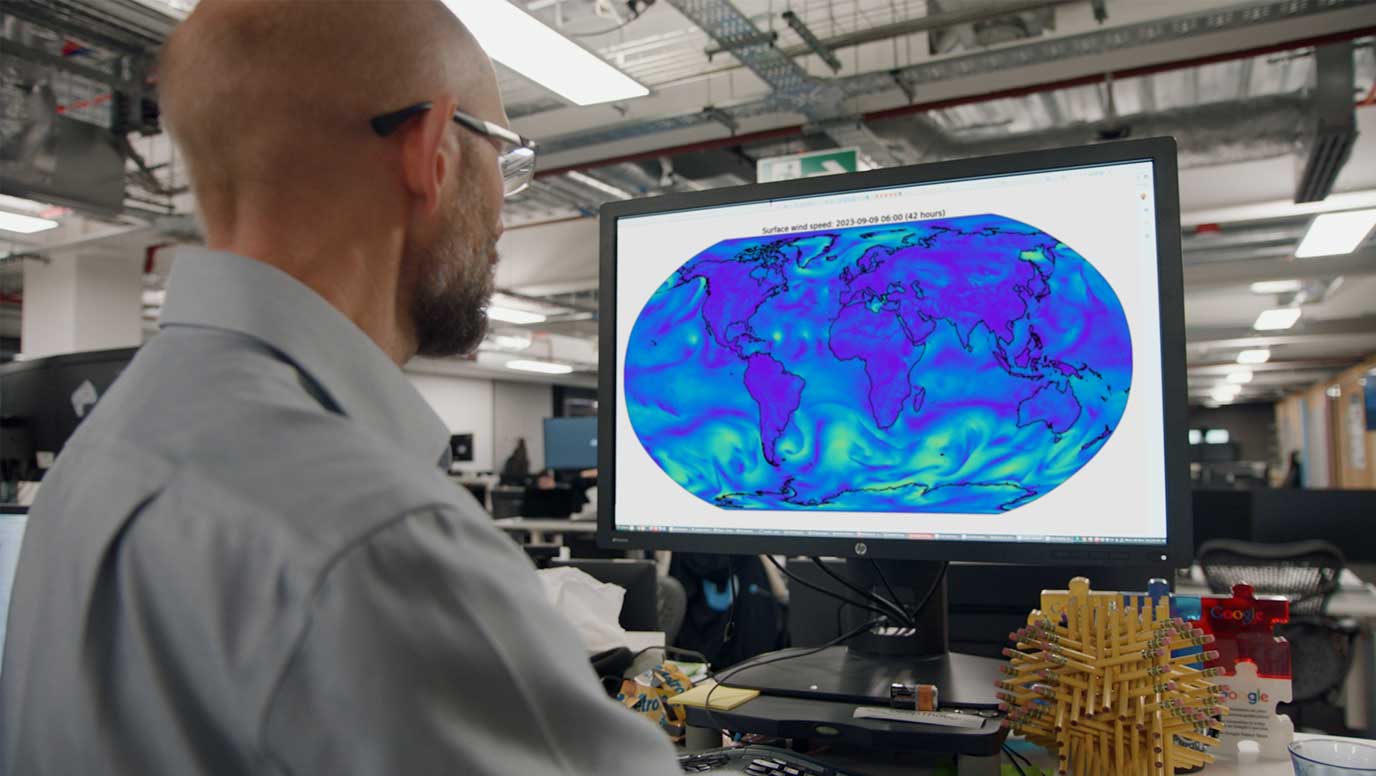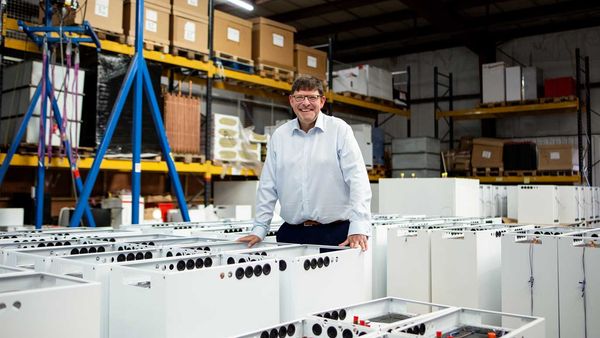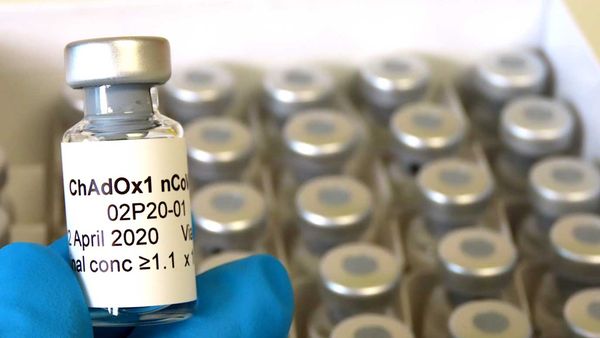Google DeepMind, AstraZeneca-Oxford University and Sunamp contest MacRobert Award

The finalists are Google DeepMind, co-founded by Dr Demis Hassabis, an alumnus of Queens’ College in Cambridge; Cambridge Big Biotech AstraZeneca and its University of Oxford partners in producing a Covid-19 vaccine at the start of the outbreak – which saw three billion vaccines that saved 6 billion lives in record time; and Edinburgh-based CleanTech Sunamp.
The sun really could shine on this year’s winners regardless of the official Met Office forecasts. Google DeepMind is nominated for GraphCast, its groundbreaking, AI-powered weather forecasting software which equates to a five-year leap forward and makes what was only possible in an hour on a supercomputer, achievable in 45 seconds on a phone or laptop.
And Sunamp is in the running for producing the world's first practical, commercially viable heat battery which is replacing combi-boilers, combating climate change and fighting fuel poverty.
The technology and science up for glory therefore span an AI innovation that is revolutionising weather-forecasting, the scale up of the Covid vaccine that is being used to prevent future outbreaks and a thermal battery that has the potential to replace combi-boilers and help us achieve net zero.
Cambridge winners in past years have included Johnson Matthey (twice), just floated Raspberry Pi, breath biopsy pioneer Owlstone Medical, RealVNC, CSR and Microsoft Research.
Besides its founding roots within Cambridge University, Google DeepMind has other links to the city: The Google DeepMind Research Ready programme is a summer internship programme offering insights into AI research to those from backgrounds under-represented in this field.
Run by the Department of Computer Science and Technology, it involves a paid 8-week research internship taking place between 8 July and 30 August.
The winning team will take home £50,000 and will be announced at the Academy Awards Dinner in London on July 9.
This year’s finalists come from some of the UK’s fastest growing and successful sectors, each of which is crucial to the UK economy. UK registered companies in these sectors have a turnover of up to £111 billion and employ nearly 500,000 across their UK and international operations, according to The Data City insight.
Remi Lam, Staff Research Scientist at Google DeepMind, says: “The journey to create GraphCast was a testament to teamwork and technical ingenuity, involving countless hours improving models, optimising hardware, and validating results.
“But the moment we witnessed GraphCast publicly and accurately predict the path of Cyclone Lee in real time was a shared victory. This achievement solidified our confidence in GraphCast's predictive capabilities and inspired the community to embrace and build upon this groundbreaking technology.
“This is an exciting time to work on weather prediction, where developing new models and testing innovative ideas has never been more accessible. We are eager to see the countless improvements this will bring, for the benefit of humanity.”

Andrew Bissell, CEO and Co-Founder at Sunamp, said: “Being nominated for the MacRobert Award is amazing recognition that underscores the profound impact dedicated teams can have on society and the planet, proving that with the right vision and determination even the smallest players can drive monumental change.
“It has been a privilege to work with the likes of Dr David Oliver who invented our stabilised formulation for Plentigrade phase change material; Maurizio Zaglio bringing fresh ideas from academia to model and refine the heat exchange process; Sandy Gataora bringing to bear decades of expertise from the world of HVAC and the whole team crossing disciplinary boundaries to bring something needed and new into the world.
“Overcoming these significant engineering challenges is not just an innovation, it’s a beacon of hope for reducing carbon emissions from heating and cooling around the world."
The University of Oxford and AstraZeneca led a consortium of manufacturers, suppliers and other partners in the development of an innovative manufacturing process that was rolled out globally.
The innovative approach combined cutting-edge cell culture technologies with streamlined workflows and robust quality control processes, enabling swift and efficient production of billions of vaccine doses at multiple sites in record time.
This effort not only played a crucial role in managing the pandemic but also set new benchmarks in pharmaceutical manufacturing, process development and technology transfer, and made possible a more efficient and versatile route to disease control now and in the future.
Using the pioneering new process, one of the collaborators, the Serum Institute of India, has since successfully scaled up manufacturing of an Ebola vaccine in response to an outbreak, delivering doses in just 81 days. Professor Alexander Douglas, Principal Investigator at University of Oxford, said: “No matter how good a vaccine is, its real-world impact is totally dependent upon successful manufacturing engineering.
“Achieving this for the Oxford-AstraZeneca COVID-19 vaccine required unprecedented innovation from a UK-led academic and industrial consortium which had not worked together before.
“Moving within months from two tablespoons of culture in a single lab to bioreactors in factories on five continents each making millions of doses per batch – without compromising on vaccine quality or patient safety – was testament to the engineering skills of the team and robustness of the process and technologies they developed.
“The three billion doses manufactured, the affordability of the product, and the six million lives saved show the impact of that innovation. With vaccines against other diseases already being made using the same process, the benefits to people across the globe will continue to be realised for years to come.”
The finalists were chosen through a rigorous and highly competitive selection process, chaired by 2002 winner and Fellow of the Royal Academy of Engineering, Professor Sir Richard Friend – a Cambridge Dontrepreneur.
Sir Richard said: “This year’s three finalists highlight the power of collaboration in creating engineering excellence. GraphCast’s success results from bringing together the expertise at DeepMind from other applications of AI to tackle the challenge of weather forecasting, which is of increasing importance as extreme weather events become more frequent.

“The University of Oxford consortium involved in the vaccine scaleup brought innovative solutions to a series of manufacturing process bottlenecks and delivered a huge advance in capability to scale up vaccine manufacturing, of critical importance for Covid and a critical resource to tackle future pandemics.
“Sunamp’s strong connections with Edinburgh University brought fundamental science to solve practical engineering challenges that had limited phase change heat storage, and helped develop its advanced heat batteries which are paving the way for sustainable thermal energy storage and helping combat climate change.
“These finalists are addressing some of the world’s most pressing challenges relating to weather prediction and climate change, healthcare, and sustainable energy. It’s an honour to be recognising the heroes behind truly revolutionary engineering innovations coming out of the UK.
“The global impact of these innovations underscores the far-reaching influence and importance of UK engineering talent, which is a driving force behind economic growth and a sustainable future.”
• First awarded in 1969, this prize was inspired by and named in honour of Lady Rachel MacRobert (1884-1954), a geologist, suffragette and trailblazer who founded the MacRobert Trust.


